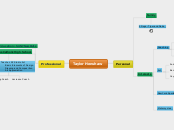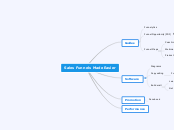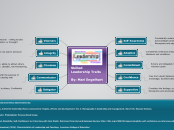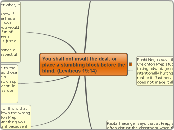Certification
Client Wellness Summary
REPORT (10/13/23)
FOURTH MEEDTING (10/11/23
THIRD MEETING (10/04/23)
SECOND MEETING (09/27/23)
FIRST MEETING (09/21/2023)
La cliente se excuso por no no haber atendido a las citas por razones de enfermedad. Una vez descrito su evento medico, pasó a describir las excelentes relaciones que ha logrado amasar en su nuevo trabajo y donde se siente tomada en cuenta, sirve como liason con otros trabajadores, ayuda a los customers y a la gerencia. Esa sensacion de bienestar la impulsa a buscar como primer objetivo hacerse menos temerosa y mas desenvuelta hablando un mejor ingles. Aparte de esta sensacion personal de crecimieto ha confrontado problemas en las casa de su hijo, tanto con este como con la esposa, al punto que ha considerado mudarse de pais. Piensa definitivamente regresar a su madre patria. Estas dificultades le han entristecido pero ha aprendido a ser mas independiente y menos conciliadora de lo que siempre ha sido.
Practice Assessment
Mentoring
SESSION 6 (09/19/23)
SESSION 5 (09/12/23)
SESSION 4 (09/7/23)
Session 3 (08/29/23)
Session 2 (08/25/23)
Session1 (05/08/23)
Coach Wellness Vision
Written Test
Review Moore Manual
The Thriving Coach
Conducting Session
Generative Moment
Process
Brainstorming
EXPLORE
Environment
Values
Strengths
Encourage to what they want NOW
Identify Topic
Definition
Generative Moment and AI
Discovery
Client Assesment
Readiness to Change
Harnessing Motivation
"Coaching is a growth-promoting relationship, that elicits motivation, increases the capacity to change, and facilitates a change process through visioning, goal setting, and accountability; at its best, this relationship leads to sustainable change for the good".
This chapter focuses on two of these key elements—“elicits motivation” and “increases the capacity to change.”
Coaches engage in undistracted listening and reflecting with an open, mindful, and curious mindset rather than preaching and prescribing, which triggers resistance and even defiance.
Motivation
External Motivation
Autonomous Motivation
Autonomous motivation is about behaving with a full sense of volition, interest, and choice. When people are autonomously motivated, they control their choices, and they are acting in ways they find interesting, important, better, or of deep value.
MI is a counseling methodology developed over the past 30 years initially as a new approach to the treatment of addiction. MI methods support the eliciting of autonomous motivation, encouraging a client to find his or her own reasons for change
The coaching model, which starts by eliciting autonomy, can help shift dynamics in the healthcare system.
Planning
Self Efficacy
Flow
SCT (Bandura)
FUENTES or SOURCES
Maestria Experiencial
Experiencia Vicaria
Persuasion Verbal
Estado Fisiologico/mental
FACTORES
Behavioral
Environmental
Personal
Evoking
WHY behind a Behavioral Change
Sense Purpose and Meaning
Measuring Motivation with RULERS
Focusing
ENABLE FOCUSING DISCREPANCIES ANALYSIS
Perceptive reflections
No importa que acertemos o no con nuestras reflexiones. El cliente siempre agradece esas percepciones. Malo es que no. haya ninguna. Recordar lo que me dijo Angelica sobre este topico
Shifted Focus
Double Sided
Amplified
Simple
Decisional Balance
Engaging
Enganchar al paciente con su libre discurso Sin ofrecer puntos de vista ni soluciones, desde el balcon del coach. Las admoniciones y el "te lo dije" estan absolutamente prohibidos.
La resistencia puede aparecer y hay que trabjar con ella pasando de:
a) Una perspectiva experta o autoritaria y que es donde el coach cree que sabe, pasar a la libre exresion del cliente que es quien sabe lo que debe hacer
b) Descartar la busqueda de las raices del problema y convertirse en un cooperador del cliente.
c) No centrarse en una lucha forzada contra la resistencia sino contrabalancear el proceso..
EL USO DE OPEN-ENDED QUESTIONS Y ESTAS ME PARECEN LA BASE DEL TRABAJO:
1) What is the best experience you have had with your desired future behavior?
2) What concerns do you have about your current behavior?
3)What values do you seek to live by in your life?
4) How might your desired future behavior lead to benefits in the future?
5) How might your current behavior lead to problems in the future?
6) What changes would you like to make in your routine? (Miller & Rollnick, 2012
MAS EL USO REFLECTIONS ES CENTRAL
EL COACH ESTA ATENTO E INTEGRADO A LA ATENCION
SE HACEN REFLEXIONES
SE HACEN PREGUNTAS ABIERTAS
EL CLIENTE HABLA
Celebrating Our Best
5D
Destiny
Design
Dream
Discover
Define
Five Basic Principles
P. Poetic
P. Anticipatory
P. Simultaneity
P. Constructionist
P. Positive
Expressing Compassion
When coaches radiate warmth, patience, and empathy, clients are better able to let go of the past, accept themselves, and feel self-compassion.
Coach
NVC
Explore self-esteem
Compassion
Self-Co
Empathy is the respectful understanding of another person’s experience, including his or her feelings, needs, and desires. It is not a prelude to the work of coaching; it is the work of coaching
Client
Self-Compassion
How to Suffer Well
Negative Emotions
Self-Criticism
Reduce Brain Learning
Coaching Presence
Coaching Presence se refiere a un estilo personal del coach para lograr una relacion de confianza y que ademas le permita ser efectiva en su trabajo con el cliente. Son esas habilidades, caracteristicas humanisticas que posee el coach, que usadas adecuadamente permitan afectar positivamente al cliente y a la relacion entre la pareja coach-coachee.
“ability to be fully conscious and create spontaneous relationship with the client, employing a style that is open, flexible and confident"
Es ser mas que parecer o en otras palabras, esa maestria derivada del concimiento de las ideas aplicadas con naturalidad y convencimiento, que son percibidas por el cliente y asi, mediando ellas ejercen efectos positivos sobre este.
Character and strenghts
VIA
Being Skills
Mindfulness
Courage and Authenticity
Playfulness
Calm
Zest
Affirmation
Joy
Warmth
Coaching Relationship (RAPPORT)
No es posible lograr el cambio en el cliente si la relacion cliente-coach no es de confianza y de autentica conexion entre el coach y el cliente (Verdadera Relacion Medico-paciente).
Pero debemos partir de este concepto basico que NO MANEJABAMOS en la Facultad, es que "Human beings are fundamentally and pervasively motivated by a need to belong, by a strong desire to form and maintain enduring personal attachments; they seek frequent positive interaction within the context of long-term, caring relationships (Baumeister & Leary, 1995). Coaching is one such growth-fostering relationship that enables clients to reach their goals and get closer to their visions".
Three Core Coaching Skills
Perceptice Reflexions
Open Inquiry
Mindful Listening
Coaching Relationships
Confindentiality
Don't over delivery or under promise
Slow Down
Humble
Empathy
Unconditional Positive Regard
Trust and Rapport
Coaching Psychology
CP is a branch of psychology that is concerned with the systematic application of the behavioral science of psychology to the enhancement of life experience, work performance, and well-being for individuals, groups, and organizations.
Key Components of CP
(Coaching Skills)
MECHANISM OF ACTION OF COACHING
Process of Change
Build Confidence
SOCIAL COGNITIVE THEORY
Elicit Self Motivation
SELF DETERMINATION THEORY
MOTIVATIONAL INTERVIEWING
Growth Promotion Relationship
NEUROPLASTICITY
Cognitive Behavioral Therapy
Flow Theory
Design Thinking
Social Cognitive Theory
Emotional Intelligence
Positive Psychology
Non Violent Comm.
Appreciative Inquiry
Motivational Interviewing
SELF-DETERMNATION
Coaching and Social Enviroment
Involvement
Autonomy Support
Structure
The end game of coaching
Introduccion. Que Es Coaching?
Coaching is a growth-promoting relationship that elicits autonomous motivation, increases the capacity to change, and facilitates a change process through visioning, goal setting, and accountability, which at its best leads to sustainable change for the good.
The Process of Coaching
Subtopic
In each session GENERATIVE MOMENT develops
In each session 3 Mo. plan and weekly activities
are reviewed
1st. Session client create a vision and a 3 Mo. Plan
Client provides background information
Contract Discussion
Expert vs Coach Approach
Never do this:
1. Ordering.
3. Giving advice.
4. Persuading with logic.
5. Telling people what they should do.
6. Disagreeing.
7. Agreeing.
8. Shaming, ridiculing, or labeling
9. Interpreting or analyzing
10. Reassuring, sympathizing, or consoling
11. Questioning or probing
12. Humoring, or changing the subject
Physician with MI Expertise Vs Non MI abilities
Why We Need Health and Wellness Coaching
Because the Experts are not working
Outcomes
Increased personal responsability
Develop Sense of purpose and meaning
Increase Self-awareness
Increase Self-efficacy
Sustainable Behavior Change









